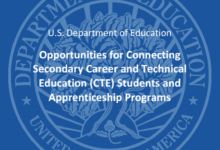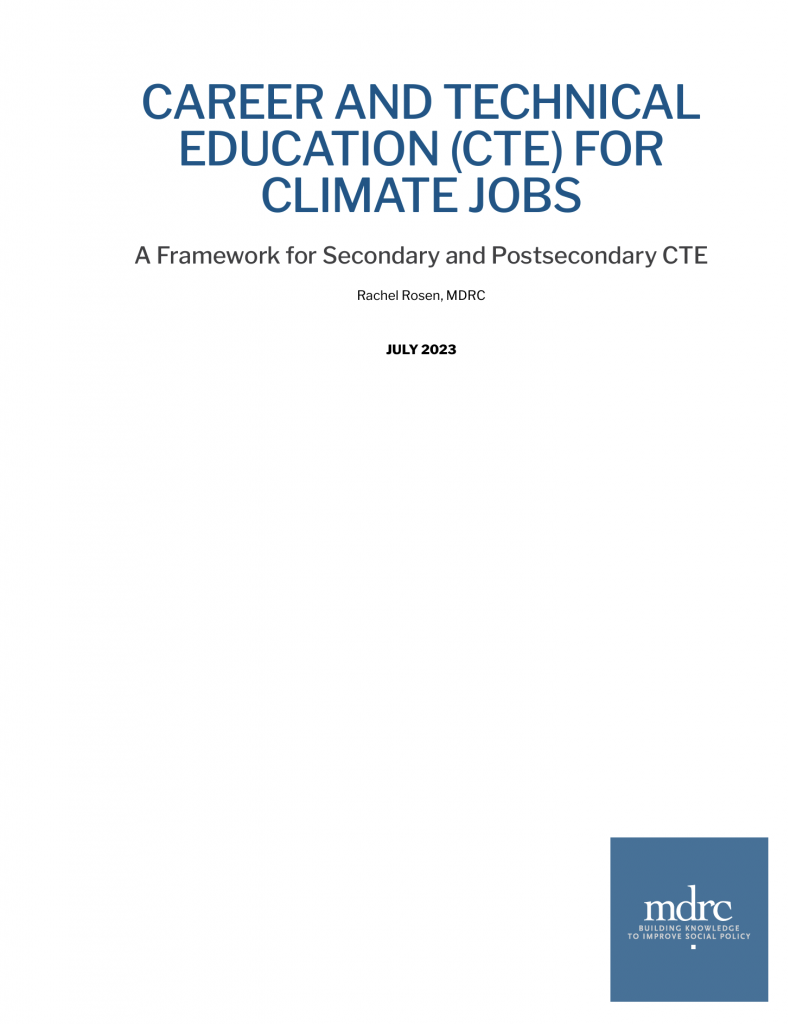Demand for everything from solar panels, electric vehicles, and heat pumps, to many other clean energy systems and products has skyrocketed in recent years. The rapid transition to clean energy, combined with a growing shortage of workers trained in the new technologies, has made it more important than ever to develop new, and scale existing, evidence-based CTE pathways and models that can meet the needs of a changing labor market. Authored by Network member Rachel Rosen, this paper from MDRC provides an overview of the scope of jobs that are affected by the transition to a clean energy and climate-resilient economy; a review of the current state of policies aimed at expanding the climate workforce; a review of the evidence about CTE; and a discussion of barriers and potential solutions to improving the education and training pipeline to support an economic transition that is also just and equitable.
Career Clusters
This resource, excerpted from the full Technical Report: Modernization of the National Career Clusters Framework, aligns the 16 Career Clusters…






